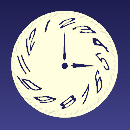

Dec 2019
The election for the Board of Directors of Circadian Sleep Disorders Network has concluded. Incumbents Peter Mansbach and Jason Myatt were re-elected to two-year terms; incumbent Karen Martin to a one-year term. We also welcome the two new board members who were elected for the first time, to two-year terms: Rachel Amon and Samuel Bearg.
Nov 2019
CSD-N Board member Alexandra Wharton agreed to be interviewed about sleep and circadian disorders on Radio Islam in the UK, in response to their invitation. The interview took place on Nov 25, 2019. Your can hear the program here; the sleep segment starts at 1:08:15, and Alex's portion runs from 1:14:20 to 1:28:32.
They thanked her:
Thank you so much for your your participation on the VOI Drive Time show. It is SO important for the show to have callers who are enthusiastic and informative as you were. For listeners the highlight of the show is the guest callers so we really value someone like yourself who can come on and give great informative answers in an attention-grabbing manner. You were an amazing guest and I hope that you can come onto the show again!
It's good to have different people representing CSD-N and raising awareness of Circadian Rhythm Sleep Disorders. Thank you Alex and (previous post) Jason.
Nov 2019
There are a total of five positions to be filled for the Circadian Sleep Disorders Network Board of Directors. Four of these are for two year terms and one is for one year. As described in the bylaws, the candidates with the four highest numbers of votes are elected for two years. The one with the fifth highest number of votes is elected for one year. In case of tie, the current Board will vote to resolve the tie.
Five people are running to fill these positions:
Voting will occur from Dec 1 through Dec 15. All members in good standing, i.e. those who have paid dues for 2019 or 2020 by Nov 20, should receive email on or about Dec 1 with a unique link to eBallot.io to vote. (NOTE: We have switched balloting providers: BallotBin's email stopped working, and we discovered this only when we tried to mail the ballots.)
The Board of Directors has ultimate responsibility for the activities of the organization, including use of funds. Members in good standing elect the Board. The Board elects the officers, who have specific responsibilities and carry out much of the work. The Board of Directors currently has eight positions. Four of the eight members are elected in even-numbered years, and four in odd-numbered years, for two-year terms. If someone resigns during their first year, the remaining year of their term may be filled in the next election. This is what is occurring now.
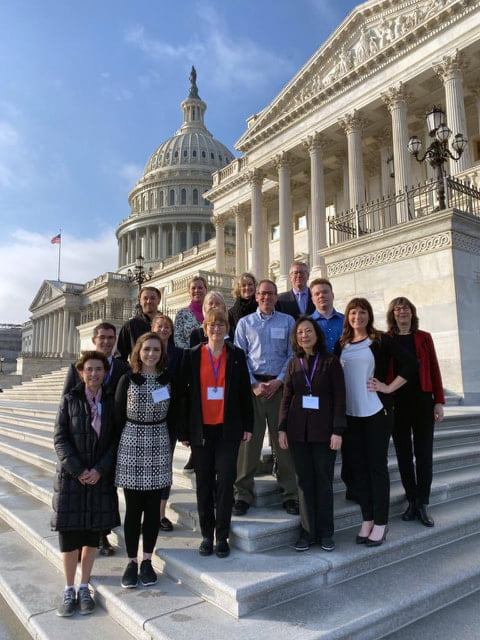 Nov 2019
Nov 2019
CSD-N Board of Directors member Jason Myatt joined Project Sleep and the Sleep Research Society (SRS) who co-hosted a Hill Day. They urged Members of Congress to support federal funding for critical sleep research and awareness.
Jason was joined by other patient advocates, organizations, and societies, including Start School Later, Hypersomnia Foundation, Wake Up Narcolepsy, Narcolepsy Network, American Academy of Sleep Medicine, and the Society for Research In Biological Rhythms.
In the photo Jason is third from the right, between Project Sleep CEO Julie Flygare (second from right), and CSD-N Medical Advisory Board member and research scientist Dr Phyllis Zee.
He writes:
The day started with a few presentations, one patient-advocate's story and a couple medical/research professionals discussing the historic and current state of research and funding on sleep. The most notable things for me were that sleep research does not really exist on its own, both from a funding and an agency standpoint. It is wrapped up in a bunch of other fields, from Neuroscience to Department of Defense research. Funding and awareness is steadily growing, but especially with the politics around budgets the past couple years it looks like sleep awareness and research funding can easily slip through the cracks. These presentations were attended by several (I'd guess 10-20) legislative aides, along with the sleep advocates and researchers.The rest of the day was spent going from office to office in our small groups. There were about 15 advocates total, split into 4 or 5 groups. Each meeting went about the same: we'd go into a conference room with a legislative aide, and each advocate would take turns telling their story - for the patient advocates, their disorder and their experiences within the medical system; for the researcher, what they'd worked on and its importance. The Legislative aide would occasionally ask questions, and they generally seemed very receptive. We'd then talk about a couple of the relevant budget issues, and then be on our way to the next office.
It appears that the program which the group was advocating for didn't make it into the final budget bill, but they are planning further advocacy in February, and Jason is expecting to participate on our behalf again.
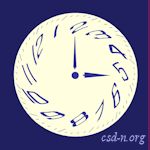 Oct 2019
Oct 2019
Circadian Sleep Disorders Network will be holding elections for its Board of Directors, and is seeking some new faces. Please read the
requirements. Meetings are held by online forum, so you can log in at any time of day to read what's been posted and post your replies. Meetings do continue for a month or more, though often not very actively.
If you're interested, please let us know soon (latest Nov 10), following the instructions at the end of the above document. Directors start serving January 15, 2020. Terms generally run for two years. There are five open slots, and only three incumbents are planning to run again, so we encourage interested people to run.
We are also looking for a new secretary and other volunteers willing to help. These officers can be board members but do not have to be. The main duty of the secretary is to write up minutes of the meetings, which are held by online forum. If you're interested, please let us know soon, following the instructions at the end of the above document.
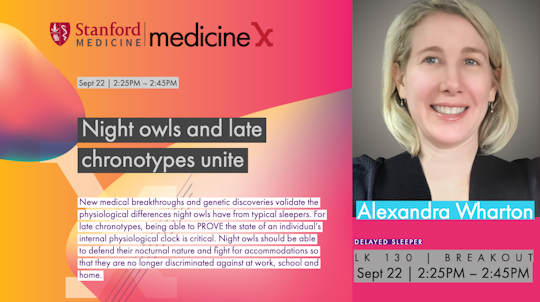 Sept 2019
Sept 2019
At the Stanford Medicine X conference in September, CSD-N Board Member Alexandra Wharton gave a talk titled Night Owls and Late Chronotypes Unite — Let's Stop Living Against Our Body Clocks!
During the presentation, she explained what Delayed Sleep Phase Disorder is, the challenges of diagnosing it, and its possible causes including recently discovered genetic variants. Attendees learned that the 2017 Nobel Prize for Medicine was awarded to scientists studying the circadian clock, and that research in how a person's circadian clock affects their physical and mental health is growing.
She stressed that DSPD is intractable and can't be adjusted with willpower or self-discipline; it is a physiological - not a psychological - condition. She described how living against one's body clock is damaging, and that later start times at work and school are imperative for late chronotypes.
The session had a rapt audience of healthcare providers, researchers and patients, and the level of discourse was encouraging. There was a discussion following the presentation about how DSPD is frequently mistreated: SSRIs can make night owls more sensitive to light, phase-delay chronotherapy can turn DSPD into Non-24, and long-term benzodiazepine use is dangerous.
The theme of this year's Medicine X conference, Listening to patient voices drives change in healthcare, aligns with CSD-N's tagline, Together we have a voice. CSD-N's successful letter-writing campaign asking the NIH to include circadian rhythm disorders in its list of sleep disorders exemplifies how a community of patients can bring about change.
 Sept 2019
Sept 2019
Now there's a respected U.S. government website you can point disbelieving friends and relatives to, that clearly acknowledges our disorders:
https://www.nhlbi.nih.gov/health-topics/circadian-rhythm-disorders.
They have also included links to our Q&A docs (DSPD and Non-24) and our simplified Fact Sheet, under More Information/Non-NHLBI resources.
The lack of coverage of Circadian Rhythm Sleep Disorders on the NIH website has been a particular concern of our president, Peter Mansbach, who continued raising the issue with NIH every year for the past seven years. Some of you helped with our email campaign several years ago - thank you. And thanks to the NIH Sleep Disorders Research Advisory Board (including our representative Susan Plawsky) who supported our effort. And to Dr Michael Twery, head of the NIH National Center for Sleep Disorders Research, who helped make this happen.
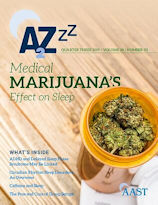 Sept 2019
Sept 2019
CSD-N president Peter Mansbach has written an Overview of Circadian Rhythm Sleep Disorders for the 2019 Q3 issue of A2Zzz, the magazine of AAST (formerly the American Association of Sleep Technologists).
Among other things, he emphasizes the need for laboratory sleep studies to be performed according the patient's circadian clock rather than expecting the patient to sleep at the lab's normal study time.
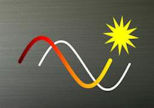 Sept 2019
Sept 2019
Night owls between the ages of 14 and 17 are wanted for a 3-week study to test whether wearing glasses that block different amounts of light in the evening affect your body clock and could help teenagers sleep and feel better. The study is being performed at the Biological Rhythms Research Laboratory, which is affiliated with Rush University and is located in Chicago, IL.
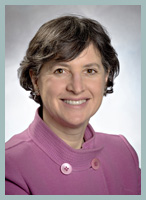 Aug 2019
Aug 2019
Circadian Sleep Disorders Network is pleased to welcome Dr Elizabeth Klerman to our Medical Advisory Board. Dr Klerman had invited us to participate in the AASM Working Group on circadian rhythm research needs, and has worked with us on a grant application. We welcome her expertise and interest in Circadian Rhythm Sleep Disorders.
 Aug 2019
Aug 2019
The Sleep Disorders Research Advisory Board (SDRAB) of the NIH (U.S. National Institutes of Health) met on Aug 1 and 2 to work on their Sleep Disorders Research Plan. Susan Plawsky, our circadian rhythm disorders (CRD) patient representative, attended both days. She ably represented our interests, again urging that CRDs receive adequate emphasis. She plays an important role in calling attention to places where CRDs are likely to be overlooked. The other participants on the SDRAB were receptive to our point of view.
Our president, Peter Mansbach, and member Alexandra Escalera also attended Aug 1, and made brief statements on behalf of CRD patients during the public comment period.
As some of you know, Circadian Rhythm Sleep Disorders are still not listed (as of Aug 2019, when this article was written) or described on the NIH website. We have been asking for this to be added for seven years now. At this meeting the Web Communications Group reported that a new sleep page is live, and Circadian Rhythm Sleep Disorders will be added in September. We hope so, although we have not yet seen any proposed content. (Note added Sept 30: it has finally been added. See article above.)
June 2019
We have submitted a Needed Research document to the working group preparing a white paper on circadian rhythm sleep disorders research needs. This is a real opportunity for CSD-N to advocate for the research we keep wishing to be done.
 Susan Plawsky, our representative on the NIH Sleep Disorders Research Advisory Board (SDRAB), has been in contact with Dr Elizabeth B Klerman, a sleep research physician and professor at Harvard Medical School. Dr Klerman is on the committee of scientists working on a white paper on needed circadian rhythm research for SRS/AASM (Sleep Research Society/American Academy of Sleep Medicine) and SRBR (Society for Research on Biological Rhythms), at the SLEEP 2019 conference in June. She asked Susan to prepare a list of research issues that CSD-N would like to see addressed.
Susan Plawsky, our representative on the NIH Sleep Disorders Research Advisory Board (SDRAB), has been in contact with Dr Elizabeth B Klerman, a sleep research physician and professor at Harvard Medical School. Dr Klerman is on the committee of scientists working on a white paper on needed circadian rhythm research for SRS/AASM (Sleep Research Society/American Academy of Sleep Medicine) and SRBR (Society for Research on Biological Rhythms), at the SLEEP 2019 conference in June. She asked Susan to prepare a list of research issues that CSD-N would like to see addressed.
Susan had previously requested input from our entire community for such a list that she used at the NIH Sleep Disorders Research Advisory Board meetings, and her initial list for Dr Klerman included those suggestions from the community. Time was short, so we have not been able to ask for new input from the community.
James Fadden, Peter Mansbach, and Susan have prepared a document on behalf of CSD-N, elaborating on those suggestions and presenting a more detailed list for Dr Klerman to present to their committee. We apologize if we have overlooked something, but we have worked day and night (mostly night ![]() ) to finalize this in time.
) to finalize this in time.
You can see our Needed Research document at https://www.circadiansleepdisorders.org/docs/NeededResearch.php .
We appreciate the working group's interest in hearing the patient point of view.
 June 2019
June 2019
On June 8-12 the 2019 SLEEP Conference, the annual meeting of the American Academy of Sleep Medicine (AASM) and the Sleep Research Society (SRS), was held in San Antonio, TX.
The conference presented and discussed the latest developments in clinical sleep medicine, and sleep and circadian research. Alexandra Wharton, a board member for Circadian Sleep Disorders Network, attended the Tuesday sessions on an 'Advocate' pass.
During the four-day event, there were more than 100 sessions, with 24 focusing on circadian rhythms. This is quite an increase from just a few years ago.
UCSF (University of California San Francisco) researcher Dr. Louis Ptacek, a pioneer in establishing genetic studies for sleep behavior, discussed his research on humans, fruit flies, and mice, probing the biology regulating the body clock and sleep.
Dr. Phyllis Zee of Northwestern University spoke about the impact circadian rhythms have on weight gain for children and adults. A new study finds that light exposure overnight during sleep has been shown to influence metabolism and highlighted the importance that properly timed light be considered as part of a healthy lifestyle. Dr. Zee also discussed important advances that were made this year in terms of blood testing to identify gene expression to determine circadian timing.
California State Senator Anthony Portantino received an AASM award for his work developing public policy that moves school start times later so students get adequate sleep. His bill, SB-328, Pupil attendance: school start time, would require the school day for middle schools and high schools in California to begin no earlier than 8:30 a.m.
Other hot topics included how essential proper sleep is to mental health, if cannabis is effective for improving sleep, and the need for standards for measuring sleep cycles with wearables.
May 2019
Last week, the U.S. House Appropriations Committee on Labor, Health and Human Services, and Education (LHHS) advanced a key bill that would provide important funding for sleep research and education projects in Fiscal Year (FY) 2020.
The bill includes a total of $41.1 billion in funding for the National Institutes of Health (NIH), an increase of $2 billion over FY 2019. Of specific interest to our community, the Committee published a recommendation on Sleep Disorders stating:
The Committee commends the recent expansion and advancement of the sleep and circadian research portfolio under the coordination of the National Center on Sleep Disorders Research (NCSDR). The Committee encourages dedicated research activities on specific sleep disorders, such as narcolepsy and restless legs syndrome, to ensure scientific progress benefits patients impacted by debilitating conditions disordering their sleep and biological rhythms.Language like this has been a driving force behind the recent funding expansion of the sleep and circadian research portfolio at NIH. With additional congressional focus on individual sleep disorders, we should expect to see meaningful investment in specific sleep conditions moving forward.
The bill also includes a total of $8.3 billion for the Center for Disease Control and Prevention (CDC), an increase of $921 million over FY 2019. Importantly, the legislation set aside $3 million for Chronic Disease Education and Awareness, as a new program that would award grants to address chronic diseases and their risk factors. This new program could help to fund critical sleep education and awareness, but more on this effort coming soon!
We note that this is just the start of a long legislative journey. The bill must pass the full house, then pass the Senate, and be signed by the President.
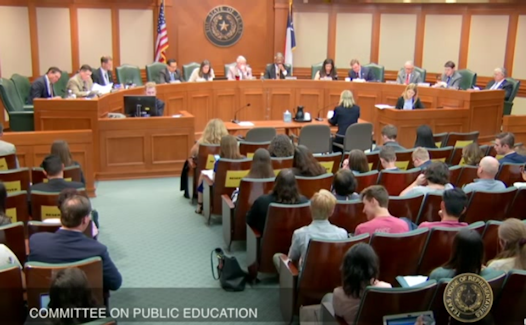
Apr 2019
CSD-N board member Alexandra Wharton called our attention to a bill (HB 1602) pending in the Texas legislature that would require schools in Texas to start no earlier than 8:00 a.m. She herself testified at the Texas House Public Education Committee hearing on April 4, 2019 at the state capitol in Austin, and she suggested CSD-N write a letter of support. You can view her testimony here (using her married name Alexandra Spencer), and read our letter here. Unfortunately the bill died in committee. However, there is continuing interest on the part of some of the legislators, and it is expected to be revived in the next session with better chances.
Apr 2019
Interesting article in the Washington Post:
How living on the wrong side of a time zone can be hazardous to your health.
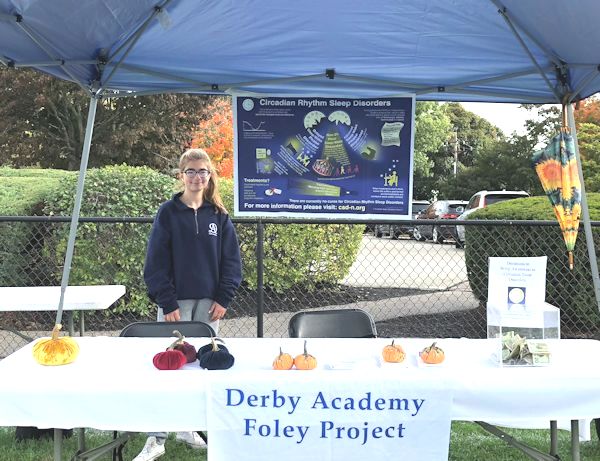
Apr 2019
Last October we reported that Elizabeth McDougall, eighth grader and recipient of the Edward R. Foley Citizenship Prize at Derby Academy in Hingham, Massachusetts, was doing her community project on Circadian Rhythm Sleep Disorders. She sent this progress report:
I just wanted to let you know that, a few weeks ago, I asked students in our upper school to create posters about Circadian Rhythm Sleep Disorders based on information they learned from my presentation or anything they learned from their own research. We hung them in our Brown Art Gallery so that the rest of the school and visitors could see them. I attached a picture of some of them. [Webmaster's note: we do not have permission from the makers of the posters, or their parents, so we have not posted the photo.] The students who created a poster could ignore dress code for a day. They could even wear their pajamas to school, if they wanted to.Thank you again, Ms McDougall!Also, Will Slotnick, founder of Wellness Collaborative, comes to our school for a couple of weeks each year to provide drug education, stress management, and mindfulness training to students, parents, faculty, and administrators. He is joined, for one of the days, by the local D.A.R.E. officer. This year, my mother and I brought them up-to-date on my brother's diagnosis and how circadian rhythm sleep disorders can appear to be depression, anxiety, or defiance. From now on, they will keep this in mind when when they work with other students.
Tonight is our school's annual talent show. I will be selling refreshments at intermission at a table displaying your poster and pamphlets. We are expecting approximately 250 people so hopefully I will help spread awareness to family and friends of our school community.
I notice on your website that you are working to include Circadian Rhythm Disorders on the National Institutes of Health website. That would bring much more visibility, and hopefully eventually more funding, to these devastating disorders.
Apr 2019
Our president, Peter Mansbach, was invited to attend the 2019 World Orphan Drug Congress USA at National Harbor, MD. This is sponsored by companies working on solutions for rare diseases, and rare disease organizations including NORD and EURORDIS. There is increasing emphasis on including patient perspectives in all stages of pharmaceutical research, including setting treatment goals ("endpoints") and finding patients for trials. Peter participated in a round table discussion on endpoints, and attended several talks.
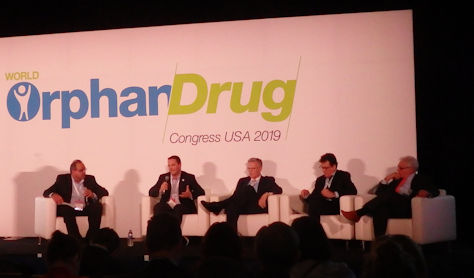
Mar 2019
Vanda Pharmaceuticals is planning Phase II trials this year for Hetlioz® as a treatment for DSPD (Delayed Sleep Phase Disorder). Hetlioz is already approved (in the U.S.) for treatment of Non-24-Hour Sleep-Wake Disorder, in both blind and sighted individuals. Hetlioz is the brand name of tasimelteon, which is a melatonin agonist (i.e. it works similarly to melatonin).
Feb 2019
CSD-N, along with other sleep organizations, has signed on to a letter requesting the U.S. Congress to restore funding to the CDC (Center for Disease Control and Prevention [U.S.]) dedicated to sleep research and awareness. You can read the letter here. Thanks to Julie Flygare at Project Sleep for pulling together all these sleep organizations.
 Jan 2019
Jan 2019
New CSD-N board member Alexandra Wharton has been appointed as CSD-N's Social Media Liaison.
She will take charge of our Twitter feed and LinkedIn page, and may contribute to our Facebook page and other social media outlets as she sees fit. Thanks to Jennifer Silvia, our previous social media liaison, who handled these duties in the past.
Jan 2019
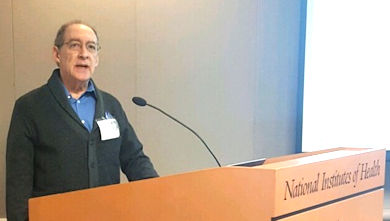 For SIX YEARS we have been trying to get Circadian Rhythm Sleep Disorders (CRSDs) listed and documented on the NIH website. That campaign came to a head at the SDRAB (U.S. NIH Sleep Disorders Research Advisory Board) meeting on Friday, Jan 18. We had a half hour segment on the agenda at 1:30 pm to present our case and to hear from the OSPEEC (Office of Science Policy Engagement, Education, and Communications - the office which controls the website) which has in the past been unresponsive. Peter Mansbach (in photo) presented brief arguments and history, which is posted at https://www.circadiansleepdisorders.org/docs/NIH-SDRAB-website.php. That document includes a proposed resolution that was to be presented to the SDRAB, and which included our proposal for minimum web content.
For SIX YEARS we have been trying to get Circadian Rhythm Sleep Disorders (CRSDs) listed and documented on the NIH website. That campaign came to a head at the SDRAB (U.S. NIH Sleep Disorders Research Advisory Board) meeting on Friday, Jan 18. We had a half hour segment on the agenda at 1:30 pm to present our case and to hear from the OSPEEC (Office of Science Policy Engagement, Education, and Communications - the office which controls the website) which has in the past been unresponsive. Peter Mansbach (in photo) presented brief arguments and history, which is posted at https://www.circadiansleepdisorders.org/docs/NIH-SDRAB-website.php. That document includes a proposed resolution that was to be presented to the SDRAB, and which included our proposal for minimum web content.
Our arguments were well received, both by the SDRAB and the OSPEEC. The director of OSPEEC assured us that they are in full agreement. Their content person said they are working to make the website more accessible and discoverable, with new central pages to assist navigation. Peter expressed concern that our additions were being deferred for other design goals, when our proposed content can fit seamlessly into the present design and still be used as topics get rearranged. The director assured us that the "process [for including CRSDs] has begun", and our new elements can be develped concurrently. However, it sounded like it would take at least 6 months to get anything posted, and probably longer. It's a large bureaucracy.
Susan Plawsky, our CSD-N representative on the SDRAB, spoke in support. Linda Secretan, the patient representative for Restless Legs Syndrome (RLS), gave a strong statement of how helpful it has been to the RLS community to have RLS on the NIH website - it's validation of a disorder that many people otherwise just find amusing. Dr Sairam Parthasarathy and others spoke in support. It was felt unnecessary to formally vote on our proposed resolution, since we had so much support from the SDRAB.
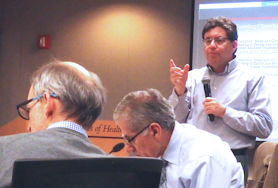 The bulk of the meeting, of course, was devoted to the details of developing the next Sleep Disorders Research Plan, optimistically scheduled to come out this June. Many thanks to Susan Plawsky for continuing to represent CSD-N and the Circadian Rhythm Sleep Disorders community in this endeavor. The photo is of Dr. Michael Twery, director of NCSDR (National Center for Sleep Disorders Research) addressing the SDRAB. In the foreground are Dr Aaron Leposky, NCSDR staff, and Dr Gabriel Haddad, current chair of the SDRAB.
The bulk of the meeting, of course, was devoted to the details of developing the next Sleep Disorders Research Plan, optimistically scheduled to come out this June. Many thanks to Susan Plawsky for continuing to represent CSD-N and the Circadian Rhythm Sleep Disorders community in this endeavor. The photo is of Dr. Michael Twery, director of NCSDR (National Center for Sleep Disorders Research) addressing the SDRAB. In the foreground are Dr Aaron Leposky, NCSDR staff, and Dr Gabriel Haddad, current chair of the SDRAB.
Archived News 2018
Archived News 2017
Archived News 2016
Archived News 2015
Archived News 2014
Archived News 2013
Archived News 2011 - 2012 (incomplete)